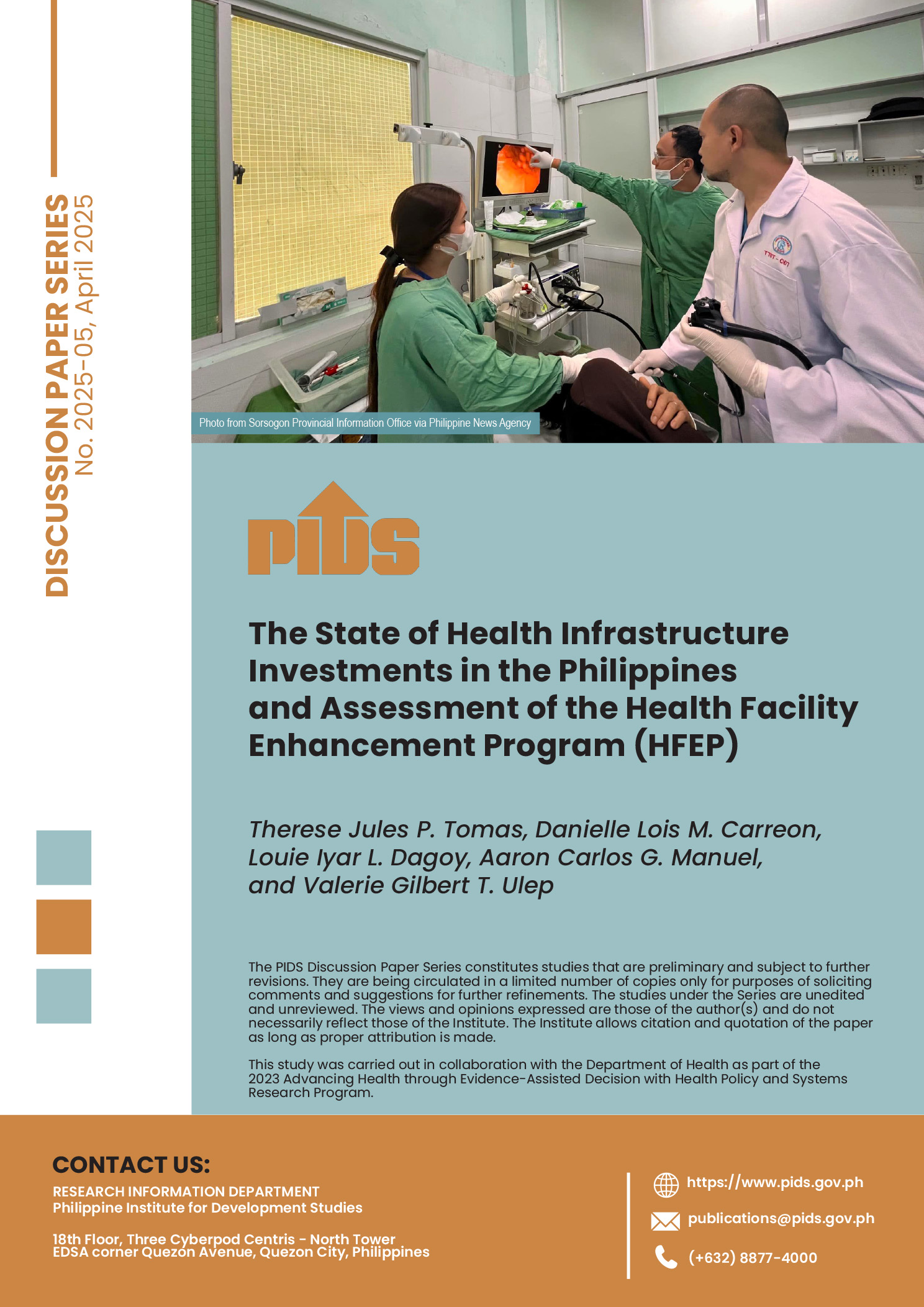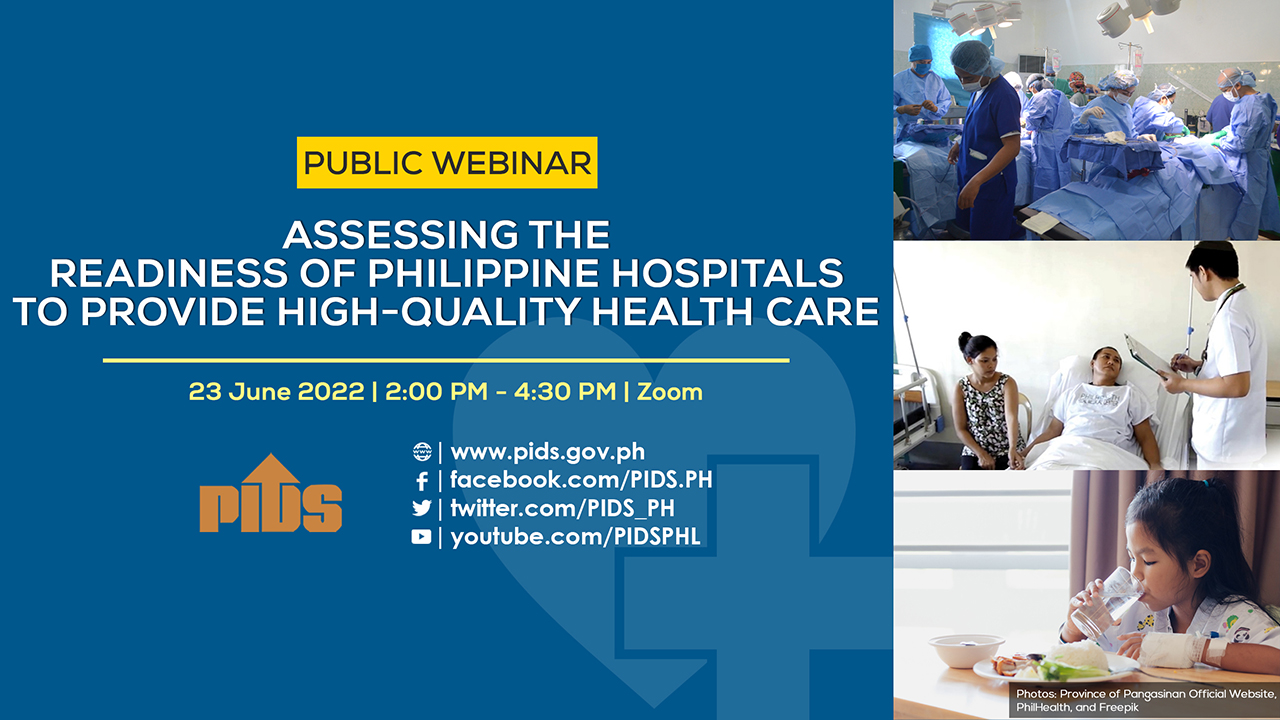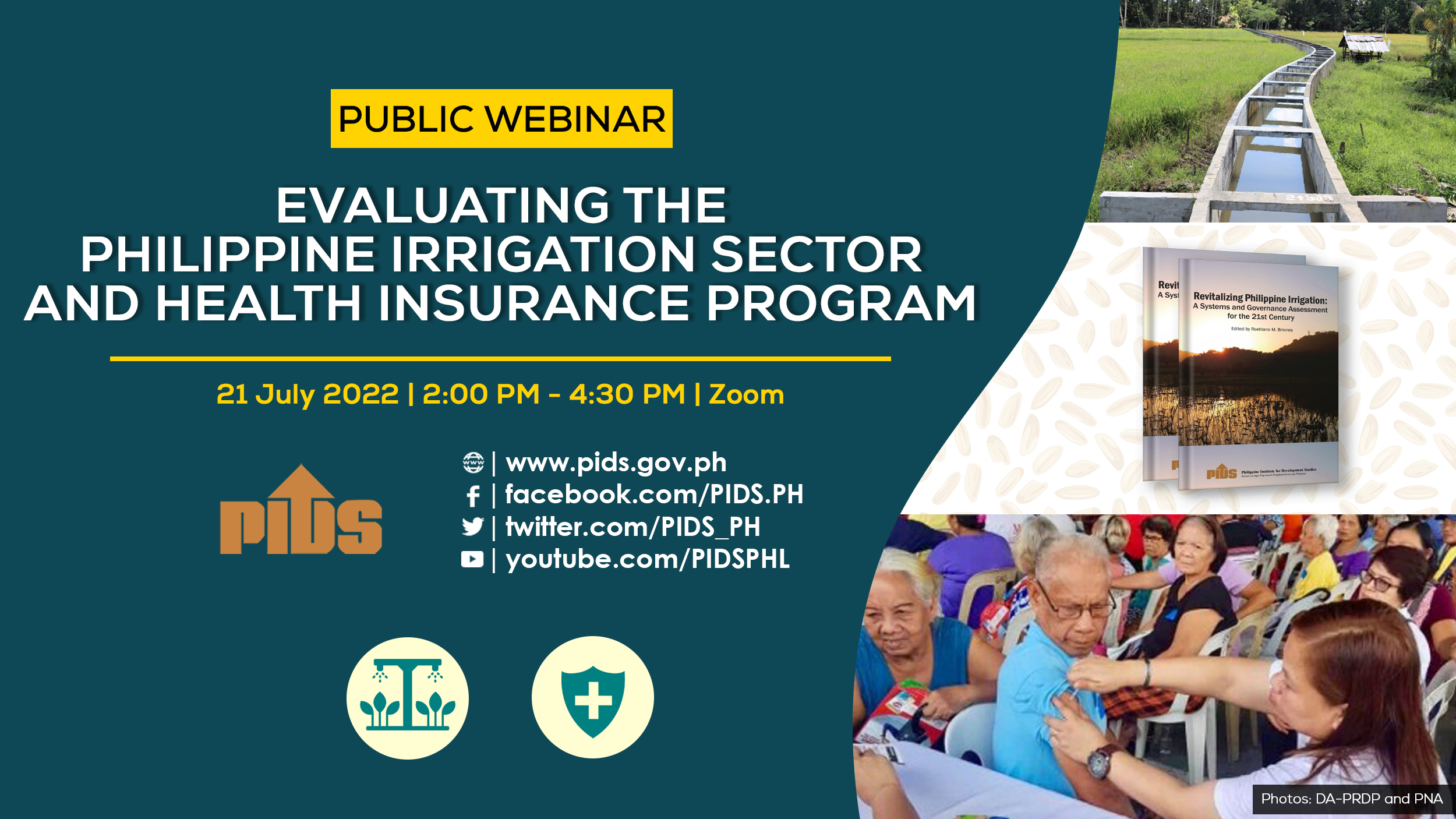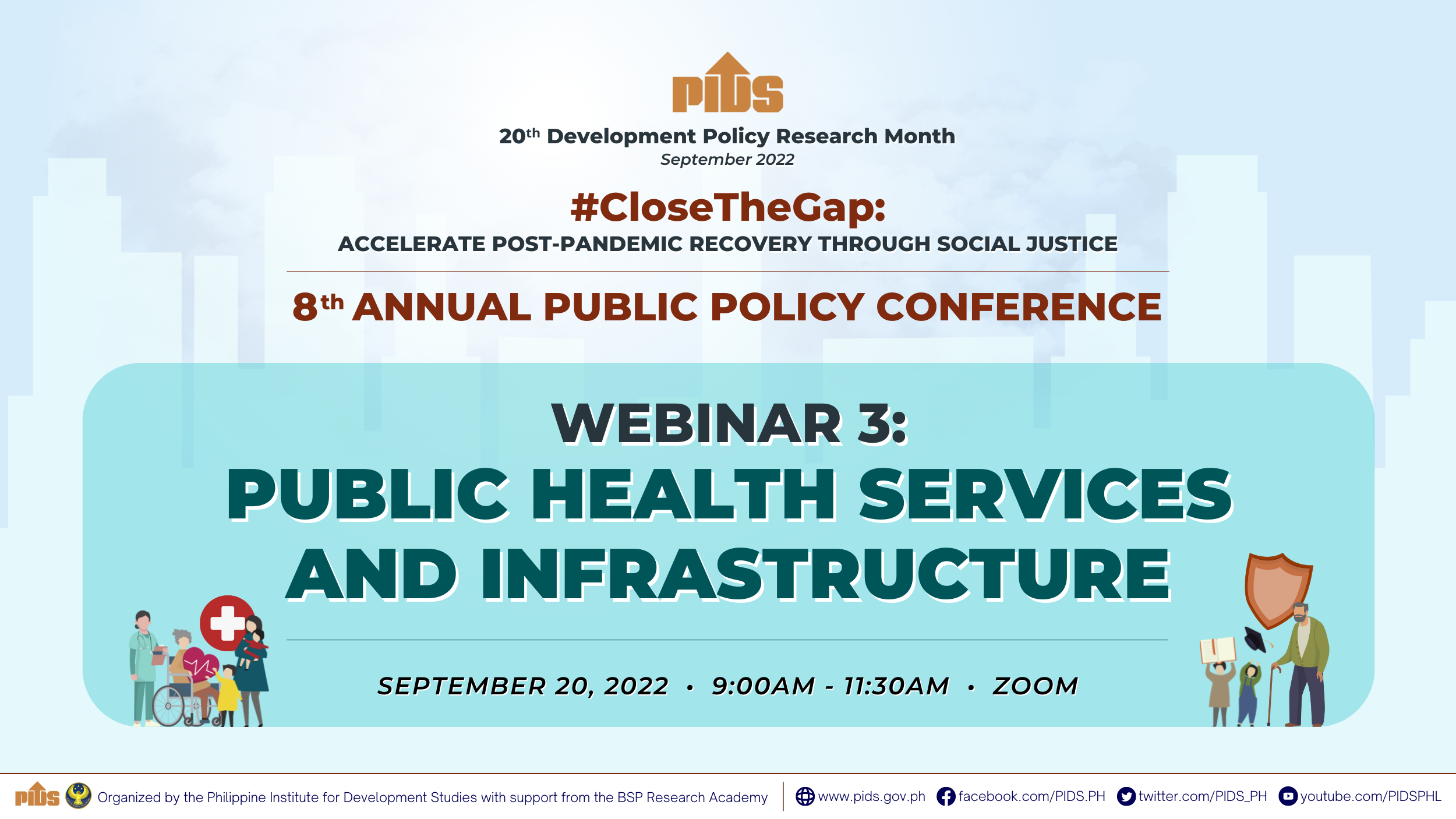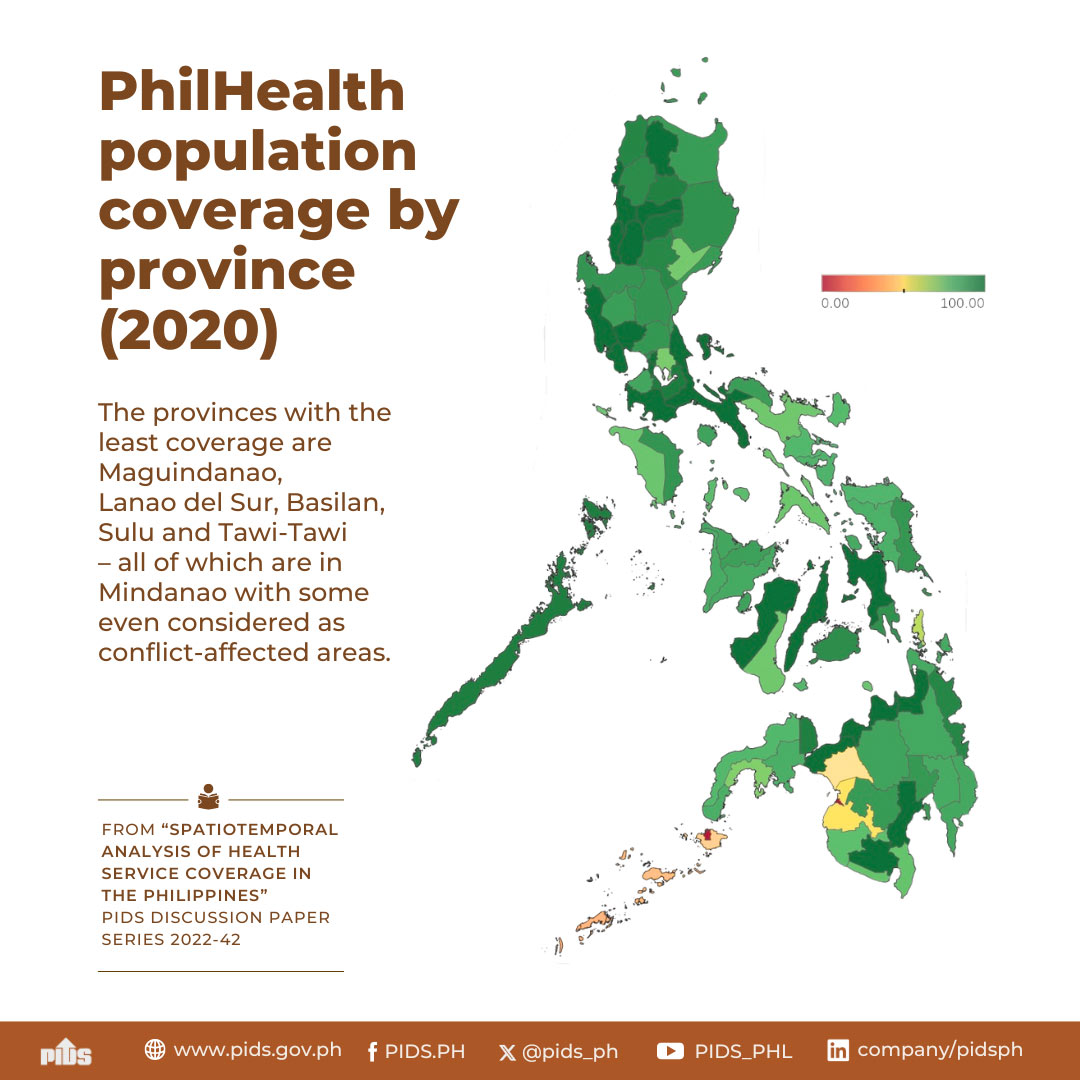Philippine Institute for Development Studies, in cooperation with the Rockefeller Foundation, is conducting a two-year project that aims to identify outstanding health market innovations (HMIs) in the Philippines. These innovations cover programs being taken by both public and private sectors that intend to address quality, affordability, equity and availability of health care. To bridge information gaps about HMIs and to provide better health care and financial protection especially for the poorest and vulnerable, the HMI project engages in three core activitiesinformation, analysis and recognition.
The project will search and recognize innovative practices that impact on the major causes of ill health among the country`s poor. This includes the preparation of a master list of all health intervention models in the Philippines. Under this study, HMIs will be grouped into five thematic areas: (1) Organizing Care Delivery or those programs that reduce fragmentation and informality of health care delivery (ex., -professional association, cooperative) ; (2) Financing Care or those initiatives that mobilize fund for health care (ex., health insurance) ; (3) Regulating and Incentivizing Performance such as those projects that set standards and give incentives to higher quality health care or increased access for target populations (ex., accreditation, pay for performance); (4) Changing Consumer and Provider behavior such as those innovations designed to change the behavior of health individuals involved in health transactions (ex., health awareness models, training) and (5) Leveraging Technology and Innovative Operational Processes or those processes, technologies or products that facilitate increased efficiency, lower costs, higher quality or improved access.
Information technology innovations without link to administrative process and service delivery, pure private profit activities such as private insurance, health- related donations and corporate social responsibility are excluded in the list. This is because the HMI project focuses on public- private partnership as well as private sector activities that are socially oriented.
From this list, 30 of the most notable schemes will be shortlisted by different stakeholders both public and private involved in the health services sector. The selection of the 30 programs/schemes to be shortlisted will be based on the following criteria. First, the innovation should have been able to overcome one or more of the institutional problems of the country`s health sector. Second, the innovation must have achieved sustainability and can be replicated or implemented on a larger scale. Third, the innovation must be pro-poor. Even purely-for-profit initiatives are eligible provided that they offer service or products that are affordable, of good quality, and have good value-for-money. Lastly, the innovation must be interesting, unique and pioneering.
Among the 30, the three most innovative programs will be selected and written as case studies to gather deeper understanding on the challenges, lessons learned and best practices of these health programs. Recognition for the identified innovative programs will be awarded during a National Conference sometime late this year, which will be attended by implementers, representatives from the public and private health sectors, donors and other stakeholders.
The project will search and recognize innovative practices that impact on the major causes of ill health among the country`s poor. This includes the preparation of a master list of all health intervention models in the Philippines. Under this study, HMIs will be grouped into five thematic areas: (1) Organizing Care Delivery or those programs that reduce fragmentation and informality of health care delivery (ex., -professional association, cooperative) ; (2) Financing Care or those initiatives that mobilize fund for health care (ex., health insurance) ; (3) Regulating and Incentivizing Performance such as those projects that set standards and give incentives to higher quality health care or increased access for target populations (ex., accreditation, pay for performance); (4) Changing Consumer and Provider behavior such as those innovations designed to change the behavior of health individuals involved in health transactions (ex., health awareness models, training) and (5) Leveraging Technology and Innovative Operational Processes or those processes, technologies or products that facilitate increased efficiency, lower costs, higher quality or improved access.
Information technology innovations without link to administrative process and service delivery, pure private profit activities such as private insurance, health- related donations and corporate social responsibility are excluded in the list. This is because the HMI project focuses on public- private partnership as well as private sector activities that are socially oriented.
From this list, 30 of the most notable schemes will be shortlisted by different stakeholders both public and private involved in the health services sector. The selection of the 30 programs/schemes to be shortlisted will be based on the following criteria. First, the innovation should have been able to overcome one or more of the institutional problems of the country`s health sector. Second, the innovation must have achieved sustainability and can be replicated or implemented on a larger scale. Third, the innovation must be pro-poor. Even purely-for-profit initiatives are eligible provided that they offer service or products that are affordable, of good quality, and have good value-for-money. Lastly, the innovation must be interesting, unique and pioneering.
Among the 30, the three most innovative programs will be selected and written as case studies to gather deeper understanding on the challenges, lessons learned and best practices of these health programs. Recognition for the identified innovative programs will be awarded during a National Conference sometime late this year, which will be attended by implementers, representatives from the public and private health sectors, donors and other stakeholders.

